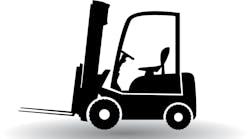Last-mile carriers will be "dramatically" impacted by the recent collapse of Baltimore’s Francis Scott Key Bridge, according to Joel Pinsky. president of the Customized Logistics & Delivery Association (CLDA).
“We’re already hearing from our customers asking us what this will do to their costs and delivery times. I’ve heard from others in the association that the same thing is happening to them,” says Pinsky, who is also the CEO of Global Messenger and Logistics in Baltimore.
While much of the reaction has been focused on the ships that go in and out of the harbor, Pinsky expects the impact to quickly spread to many of the last-mile providers who are part of the CLDA.
“30,000 vehicles go across that bridge every day, including 4,900 trucks. All of them will face diversions, congestion and longer travel distances,” he says. “Many of our members use independent contractors who depend on making a certain number of deliveries daily. If they have to drive farther and spend more time in traffic, it will cut down on the number of deliveries they can make and the money they can earn,” he says.
He points out that there are a limited number of ways to deliver in, around and through Baltimore. “Those doing deliveries will have to skirt the city on the beltway using I-695, go through either the Fort McHenry Tunnel or Baltimore Harbor Tunnel or drive through the already-jammed streets of the city,” he said. “And for some of those deliveries, the tunnels are not an option because there are restrictions on vehicles that are transporting hazardous materials or have oversized dimensions. These vehicles will have to go all the way around the Baltimore Beltway or go through the city. This will add at least an hour. Not only will that delay them, it will also mean more traffic competing for the city’s streets.”
The impact will affect many of the 2,900 members of the CLDA, not just those in Baltimore, he observes. “The Baltimore Harbor is one of the busiest in the country, and this will affect the supply chain up and down the East Coast,” he points out. “This is where $23 billion worth of autos and light trucks arrive and $5 billion in construction machinery, agricultural implements, iron and steel, and other material handling equipment lands. That must be diverted to other East Coast Ports like Newport News, New York and New Jersey. The result will be significant competition for last-mile providers to get trucks, chassis and power units. And to find the drivers to make those long-distance deliveries.”
What can last-mile carriers do? Pinsky offers this advice to courier companies:
- Reach out to the drivers you currently use to understand their pain points and issues the situation has caused. “Drivers may need to be paid more for their efforts. Those affected will no longer be able to make as many deliveries during their workdays due to longer routes and traffic congestion. In addition, they’ll be burning more fuel sitting in traffic,” he points out. “I suggest every last-mile delivery company reach out to the drivers they use proactively to see how you can help them with this situation. Our drivers are the face of our companies, and we need to find creative ways to help them, particularly during times of crisis like this.”
- Discuss potential cost increases with your customers proactively. Explain that they can expect delivery delays and higher costs.
- Identify your accounts that involve transporting hazardous materials that cannot go through tunnels. Do the math on how routes must change and how that will impact cost and delivery times.
- Contact your customers to see if pickup and delivery hours can be expanded. “Our drivers are already requesting this,” Pinsky said. “If they can get to the customers earlier, there’s a chance they’ll be facing less traffic. And late hours will help them get there if longer routes and more congestion delay them.”
- Look at contracts and relationships with vehicle providers. See if those contracts can be strengthened.
Pinsky expects the members of the last-mile sector to look for ways to help each other respond to this situation. “This will affect many of our members, up and down the East Coast and throughout the country,” he points out. “We learned how critical it was to work together during COVID. CLDA members rose to the challenge as essential workers picking up and delivering millions of test kits, vaccines, and PPEs. We know how to pull together in difficult times, and we’ll do it again after what promises to be a tremendous stress test for the entire supply chain.”



